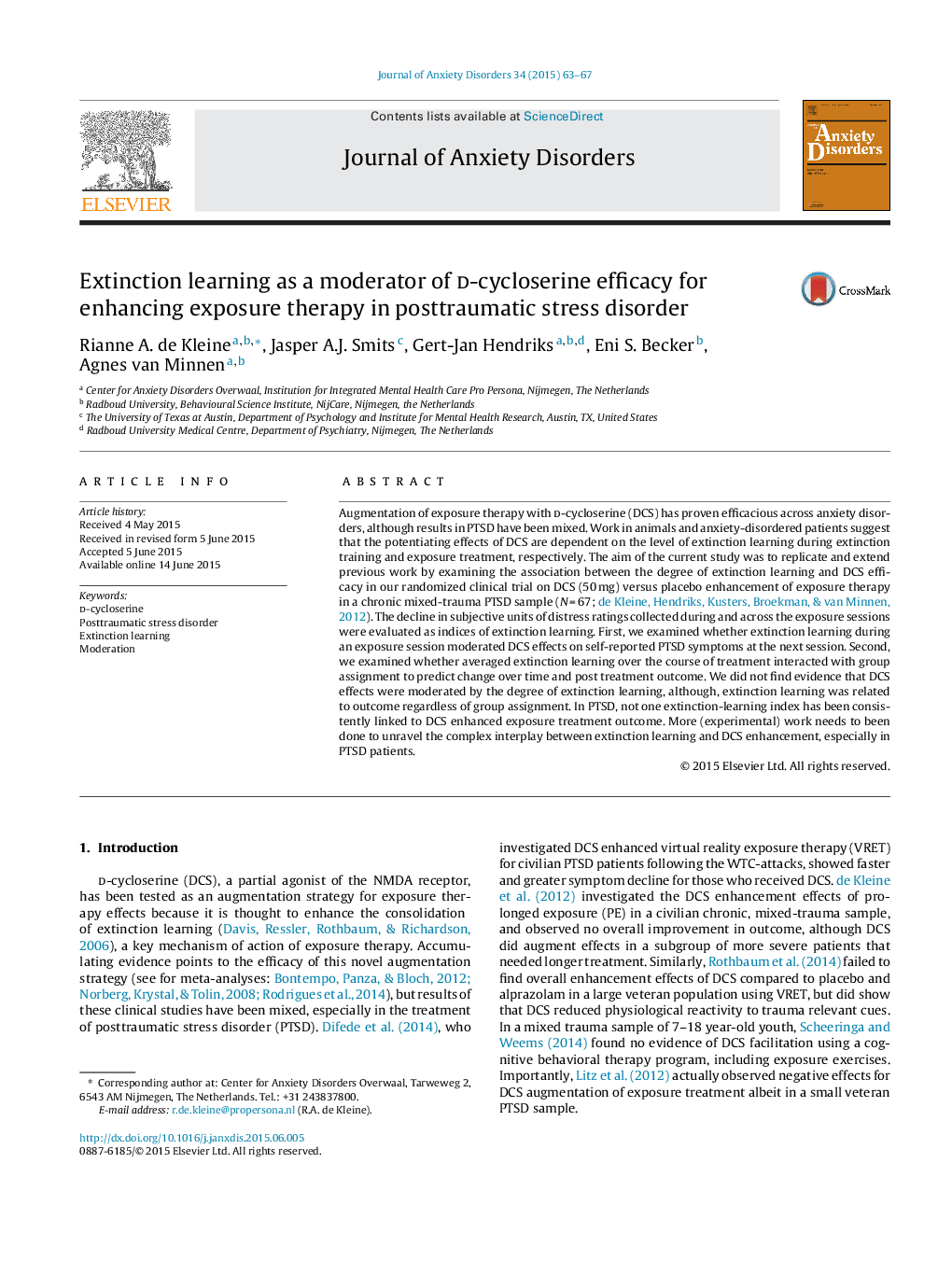| Article ID | Journal | Published Year | Pages | File Type |
|---|---|---|---|---|
| 909287 | Journal of Anxiety Disorders | 2015 | 5 Pages |
•d-cycloserine (DCS) is thought to enhance extinction learning consolidation.•Indices of extinction learning did not moderate DCS effects in PE for PTSD.•Regardless of drug condition, more extinction learning was related to better outcome.•Future work should elucidate the optimal conditions for DCS enhancement in PTSD.
Augmentation of exposure therapy with d-cycloserine (DCS) has proven efficacious across anxiety disorders, although results in PTSD have been mixed. Work in animals and anxiety-disordered patients suggest that the potentiating effects of DCS are dependent on the level of extinction learning during extinction training and exposure treatment, respectively. The aim of the current study was to replicate and extend previous work by examining the association between the degree of extinction learning and DCS efficacy in our randomized clinical trial on DCS (50 mg) versus placebo enhancement of exposure therapy in a chronic mixed-trauma PTSD sample (N = 67; de Kleine, Hendriks, Kusters, Broekman, & van Minnen, 2012). The decline in subjective units of distress ratings collected during and across the exposure sessions were evaluated as indices of extinction learning. First, we examined whether extinction learning during an exposure session moderated DCS effects on self-reported PTSD symptoms at the next session. Second, we examined whether averaged extinction learning over the course of treatment interacted with group assignment to predict change over time and post treatment outcome. We did not find evidence that DCS effects were moderated by the degree of extinction learning, although, extinction learning was related to outcome regardless of group assignment. In PTSD, not one extinction-learning index has been consistently linked to DCS enhanced exposure treatment outcome. More (experimental) work needs to been done to unravel the complex interplay between extinction learning and DCS enhancement, especially in PTSD patients.
